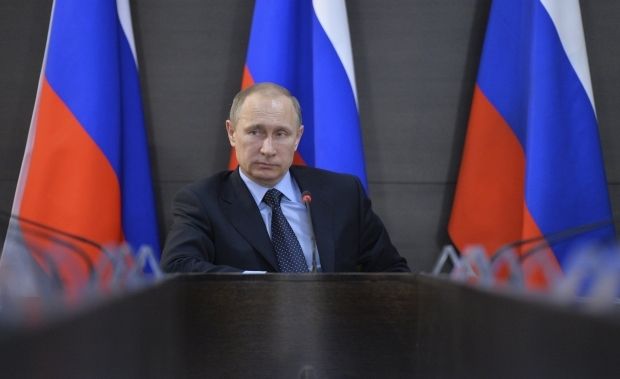
Three weak trump cards of Russian geopolitics
Over the past year, Russia has not only violated Ukraine’s territorial integrity, having annexed Crimea and further escalated the conflict in the Donbas, but also challenged the global geopolitical balance - so much so that now it has to prepare for a new economic reality.
Just a week ago, Russian President Vladimir Putin gave pretty optimistic estimates of Russia’s prospects during his annual Q&A, while the second member of the Kremlin tandem - Prime Minister Dmitry Medvedev - said that Russia would probably “have to evolve in a different economic reality.”
Putin hinted that the lifting of economic sanctions should not be expected any time soon, but the government is coping with the current problems (“[We] managed to prevent ratcheting up the spiral of inflation and the rise of unemployment, the ruble is strengthening”), and the economy should rather not “have to put up with” this "element of economic recovery”, but use the new conditions for development, especially because according to him, the sanctions have already helped both the Central Bank of Russia and the Russian government.
In turn, Prime Minister Dmitry Medvedev, speaking on April 21 at a session of the State Duma, admitted that in Russia all economy sectors have been affected by the sanctions. The total damage last year amounted to EUR 25 billion (1.5% of GDP), and this year, this figure could grow by several times, especially considering that in the first quarter Russia’s GDP dropped by nearly 2% compared to the same period in 2014. “A year ago I said that we had a very difficult period ahead... But in reality it came out even harder,” stated the Russian prime minister, adding that recent developments are all due to the unprecedented pressure on Russia because of Crimea (Putin, by the way, also said that the sanctions are not related to Crimea, as the this issue was merely a pretext for the West to “attack” Russia).
According to Medvedev, there could be no other scenario, since this (Crimea’s accession) was a historic decision for the whole Russia, and everyone must bear responsibility for it – “the country as a whole, the government, the parliament.” However, the Russian Prime Minister mentioned that Russia “will have to develop in a different economic reality” if the external pressure increases.
Actually, now that the West is pursuing its “vile” geopolitical games, Moscow’s reality is now associated with turning eastwards. No wonder Russian diplomats have been describing Russia’s unprecedented success in the Asia-Pacific region for the whole of the past year. Key to success, according to the Russian authorities, is not only the development of the Eurasian Economic Community (from January 1, 2015, the community was transformed into the Eurasian Economic Union (EEU) providing, among other things, for a common customs area), but also a gradual rapprochement with China, including, in the framework of the Shanghai Cooperation Organization (SCO); as well as the chairmanship of the Russian Federation (from April 1, 2015) of the BRICS (Brazil, Russia, India, China and South Africa). Unfortunately, the Russian bravado this “dizzying” success looks more like showing off.
Bad allies
The newborn EEU is already experiencing problems due to the sanctions imposed by Western countries against Russia, as well due to Russia’s own sanctions. Naturally, this leaves Moscow’s partners – Belarus and Kazakhstan – dissatisfied. For example, President of Belarus Alexander Lukashenko has repeatedly expressed his outrage with Russian customs restrictions on the export of Belarusian goods (however, Kremlin-forbidden goods from Europe have also been leaking through the Russian-Belarusian border).
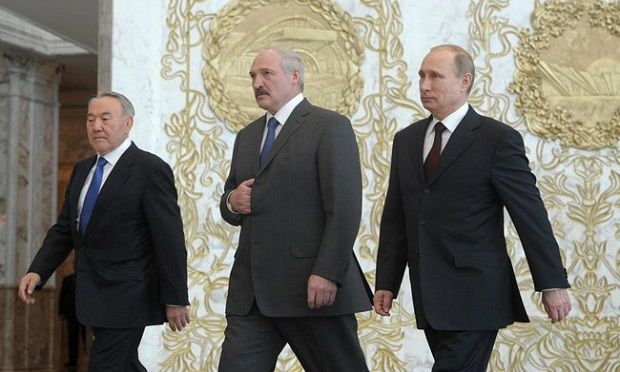
However, Minsk appealed to an agreement on the ratification of the Eurasian Union, which has a clause according to which Belarus may not stick to its terms if Russia does not lift its restrictions on trade and movement of goods. As a result, on January 1, 2015, Belarus renewed border controls on its border with Russia, announced plans to refuse Russian payments in rubles, switching back U.S. dollars, and hinted that the introduction of a single multicurrency system within the EEU is not yet to be considered.
No less serious a scandal then broke out between Russia and Kazakhstan. Besides the fact that Astana, as well as Minsk, sees no point in discussing the issue of forming a monetary union, providing for the introduction of a single currency, Kazakh businessmen this February drew the attention of the country's leadership to problems of trade development within the EEU due to the sanctions war between Russia and the West. The thing is that the devaluation of the ruble caused cheaper Russian goods to be imported into Kazakhstan. As a result, the security of local industrialists and manufacturers was jeopardized. In order to protect Kazakh business, the Kazakh authorities have taken measures – starting March 5, 2015, imports of petroleum products from Russia was limited to 45 days. The next step was banning food imports (cheese, dairy products and meat) from Russia. In response to this, Russia’s Rospotrebnadzor [Federal Service for Supervision of Consumer Rights Protection and Human Welfare] announced that some of the Kazakh-made food products sold in Russia also does not meet sanitary requirements.
According to Volodymyr Fesenko, a Ukrainian political scientist and head of the Penta Center for Applied Political Studies, these “internal” problems between the EEU allies were caused by the fact that “of the three largest countries of the Eurasian Union, Kazakhstan is least satisfied with the results of integration.” “Kazakhstan has not achieved the expected effect, but [is facing even] more problems. Not only has it not won economy-wise, it has even lost... In this regard, we can conclude that the project of Eurasian integration has clearly stalled,” says the analyst.
By the way, this is being successfully exploited by China, which long-since launched a “Great Silk Road” soft integration project. Its first stage has been designed specifically for the countries of Central Asia. Today, this project is seen as more favorable, in particular, by Kazakhstan and Kyrgyzstan, than any proposals from Russia, which is weakened by its economic crisis. “This is not such a rigid model of cooperation as the model of the Eurasian Union. In addition, China has a huge economic resource for the implementation of joint projects. And this is quite a challenge for Russia’s plans in the region,” said Fesenko.
“China offers specific infrastructure projects (from infrastructure and energy to industrial upgrading), which, among other things, push Russia out from its gas niche in the region. But given the current non-competitiveness of Russia, it is forced to cooperate with China and play by Chinese rules,” said the political analyst.
Ambitions hinder stability
However, Russia is not going to give up on the issue of its leadership, albeit imaginary, in Central Asia and is trying to use another trump card - the Shanghai Cooperation Organization (SCO), which includes Kazakhstan, Kyrgyzstan, Uzbekistan, China, Russia, and Tajikistan. Realizing its poor economic situation, while chairman of the SCO in 2015 Russia is committed to promoting trade relations and investments between the member states, without economic integration. According to Deputy Foreign Minister Igor Morgulov, this year Russia intends to pay special attention to developing cooperation with international organizations and, first of all, “using the advantages of the Eurasian Economic Union for the development of the SCO.”
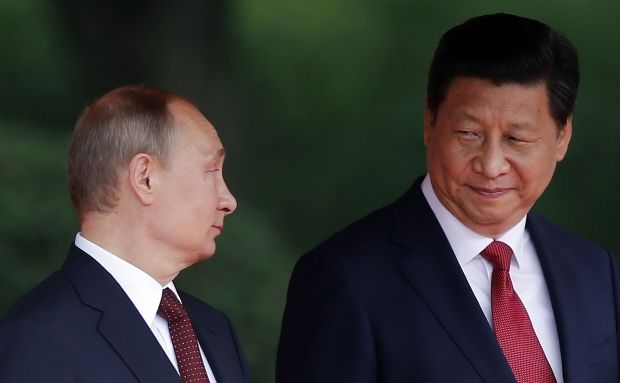
However, the Kremlin’s claims that the SCO, which was originally created for the purpose of joint border protection, has long-since gained an economic vector are not quite true. The key tasks of uniting the SCO member states remain battling extremism, separatism and drug trafficking. Since China plays a key role in this organization, it also defines its basic strategy. “The SCO is difficult to manage in terms of promoting someone else's national interests. The main task of the participating countries is coordination, not integration,” said Vitaly Kulik, political analyst, director of the Center for Civil Society Studies.
According to him, the conflict in eastern Ukraine and Russia’s annexation of Crimea, are, in a sense, a challenge for China related to the issue of separatism. In this context, the main task of the SCO member states is fighting against separatism at their borders. It is the ability to create a zone of stability on the member states’ borders that is the essence of this association. And here, oddly enough, the interests of China and Russia are the same, as the Kremlin finds it important to ensure stability in Central Asia due to the coming changes in the region. Experts note that the situation in some Central Asian countries, particularly in Uzbekistan and Kazakhstan, could quickly become explosive. The thing is that that the leaders of these states are in their seventies. It is obvious that, in the case of Islam Karimov and Nursultan Nazarbayev leaving their posts, a process of redistribution of power in these countries may begin, and it may take a form of color revolutions, as it occurred in 2005 in Kyrgyzstan (the Revolution of Tulips).
“For Russia, it is important to ensure stability in Central Asia, which may see a large explosion due to the end of the personal regimes of their founding fathers. Here, in a sense, the interests of [the Russian Federation and China] coincide. But there is a difference in the approach. The SCO will not transform into an alliance or a military union. This is a discussion platform, and nothing more,” said the analyst.
Indeed, practice shows that the SCO has not resolved any of the major issues between China and Russia, and they are not even on the agenda of the talks. All problematic issues are discussed at the bilateral level between Moscow and Beijing.
In turn, Sergei Parkhomenko, a political scientist and director of the OPAD Center for Foreign Policy Studies believes that Russia’s main problem in the issue of the SCO’s possible restructuring remains the imperial chauvinism of the Kremlin leaders. “Firstly, whatever the Russian leadership builds, it sees it through the prism of the ‘great and mighty’ Russia, the format of an empire, which it sticks to in its geopolitical plans. However, this format does not suit any of the potential partners. Secondly, Russia is always willing to take up leadership in any geopolitical configuration. But I really doubt that China will be ready to give up its leadership of the SCO, as it also has the same ambitions. Still, Putin and Co. will not agree to build geopolitical alliances on any other conditions,” Parkhomenko said.
Influence depends on financial strength
Russia’s third political “card”, which it is trying to play in 2015, is the BRICS grouping, which combines five countries: Brazil, Russia, India, China, and South Africa. Formally, the BRICS is the club with the same interests, mainly economic ones. From April 1, the Russian Federation is presiding in this club, and it will host a BRICS summit on July 8-10 where the leaders of the member states will meet with the leaders of the SCO countries.
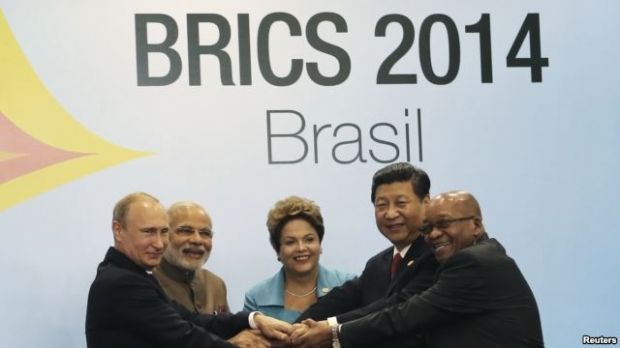
It is possible that at this meeting Russia will voice the need to transform the economic cooperation within the BRICS to political cooperation (opposing to the EU and the US). “If we talk about the BRICS, Russia will try this year, given its presidency in the organization, to make maximum use of its status. Another thing is that Russia-inspired conflict in Ukraine, Moscow’s confrontation with the West, and the internal economic situation in Russia will seriously weaken the effect,” said Volodymyr Fesenko.
According to him, the structure of the BRICS would be great to use in times of economic growth, when it is possible to implement global projects either with Brazil or with China. But in this case, considering the abovementioned, it is China that is using Russia.
Vitaly Kulik shares this opinion, “The markets and the capacity of the BRICS are quite significant and they should be taken into account. With the exception of Russia, the other member states are now showing the dynamics of economic growth. But all of them have different interests and, most importantly, none of them address the issue of the poverty of the population, despite the fact that they are the world’s largest producers.”
Actually, according to the analyst, the large number of the poor in each of the BRICS countries is the club’s major challenge. “As long as they fail to deal [with this challenge], there will be no political consensus on any issue,” Kulik said.
In addition, it is worth noting that that there is a growing risk of defaults within the BRICS, and securities of the member states are getting less trustworthy among investors who don’t wish to become a hostage to the risks of insolvency. In January, 2015, one Chinese real estate developer declared default, and investors started urgently selling Chinese securities. Also earlier this year, a Brazilian construction company OAS, a subcontractor of the Petrobas oil company announced its bankruptcy.
In general, according to JP Morgan, in just the first quarter of 2015, the ratings of more than 132 bond issuers from the BRICS emerging markets were downgraded, while only 25 companies were upgraded...
Russia’s activity in the geopolitical field as a whole, as well as in the SCO and the BRICS, reveals the Kremlin's attempts to break the international isolation that Russia has found itself in. One way was to downplay the Ukraine issue, or at least make it look insignificant. In their own way, the loud statements about Russia's 2015 presidency of an international structure, the signing of rafts of treaties and agreements, and assurances of friendship and economic cooperation in Asia, Africa and Brazil, have two key objectives.
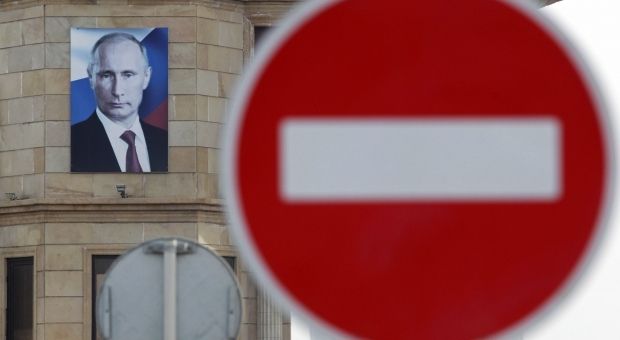
First, it represents a kind of inner satisfaction for the Russians. Russia is not actually isolated from the rest of the world - it hosts the SCO and the BRICS summits, and also the May 9 commemorations, with some representation of international leaders (the quality of such representation is not mentioned). This allows the Kremlin to say that neither Vladimir Putin personally, nor the whole country, are in any isolation.
Second, there is an attempt to send a signal to the EU and the United States that Russia finds support with third parties in the global game. However, it is worth noting that such measures are unlikely to turn into an anti-Western demonstration (neither in the framework of the SCO, nor within the BRICS).
Indeed, there is a possibility that Russia will be playing on this pitch with in the coming months with yet more statements about the need to comply with the Minsk Agreements. But the bottom line is that such actions will only fulfill PR tasks. They will not affect the solution of any economic, military or strategic issues.
Tatiana Urbanskaya

